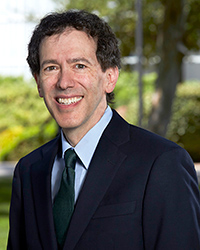Dr. David Orentlicher

What's the most important thing you are working on right now?
Income inequality. One of our country’s great strengths has been its promise as a land of opportunity. But that’s becoming less of a reality for many Americans. The odds of climbing the socioeconomic ladder are low for those on the bottom rungs, and well below the odds they would face in other Western developed countries.
I’m particularly interested in the role of “economic residential segregation.” The well-to-do are less likely than in the past to live next door to the indigent, leaving many of the poor in neighborhoods that are isolated from their more prosperous counterparts. As a result, many children live in “high-disadvantage” communities that suffer from high rates of poverty, low-performing schools, high levels of unemployment and crime, and unhealthy levels of lead or other toxic substances. Research has shown that what matters most for upward mobility is not how poor your home is but how poor your neighborhood is.
In my research, I’m developing policies that would replace our incentives for economic segregation with incentives for economic integration.
How does your research and scholarship influence your teaching and service and vice versa?
Some of my most important ideas have come from my teaching. When you have to explain a theory or a concept to other people and answer their questions, that’s when you really find out how much you understand the topic. The give-and-take with my students is critical not only for their learning, but also for mine.
My past service as a state representative also has had a major impact on my scholarship. Seeing the problem of partisan polarization from the inside helped me recognize the ways in which our political system encourages conflict and how we can change our system so it encourages cooperation across partisan lines.
What is it about being a law school professor that inspires or motivates you?
When we recite the Pledge of Allegiance, we commit ourselves to a nation that provides “liberty and justice for all.” It’s such an important principle to guide our country, and the law plays a critical role in promoting it. In my teaching and research, the most important question for me to ask myself and my students is whether our legal rules really are providing liberty and justice for all and how we can change the law to make sure that it does so.